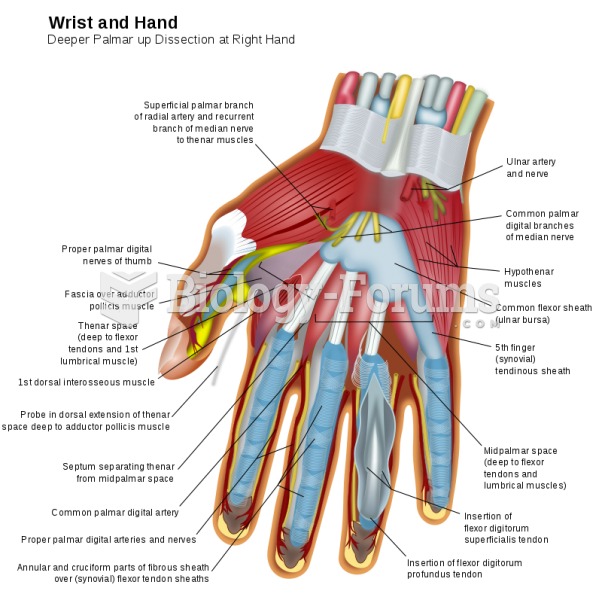|
|
|
In women, pharmacodynamic differences include increased sensitivity to (and increased effectiveness of) beta-blockers, opioids, selective serotonin reuptake inhibitors, and typical antipsychotics.
In most cases, kidneys can recover from almost complete loss of function, such as in acute kidney (renal) failure.
Most women experience menopause in their 50s. However, in 1994, an Italian woman gave birth to a baby boy when she was 61 years old.
Vaccines prevent between 2.5 and 4 million deaths every year.
A strange skin disease referred to as Morgellons has occurred in the southern United States and in California. Symptoms include slowly healing sores, joint pain, persistent fatigue, and a sensation of things crawling through the skin. Another symptom is strange-looking, threadlike extrusions coming out of the skin.
 Bronchoscopy. Figure illustrates physician using a bronchoscope to inspect the patient’s bronchial t
Bronchoscopy. Figure illustrates physician using a bronchoscope to inspect the patient’s bronchial t
 An Internet connection is usually needed to perform updates although some vehicle manufacturers use ...
An Internet connection is usually needed to perform updates although some vehicle manufacturers use ...





